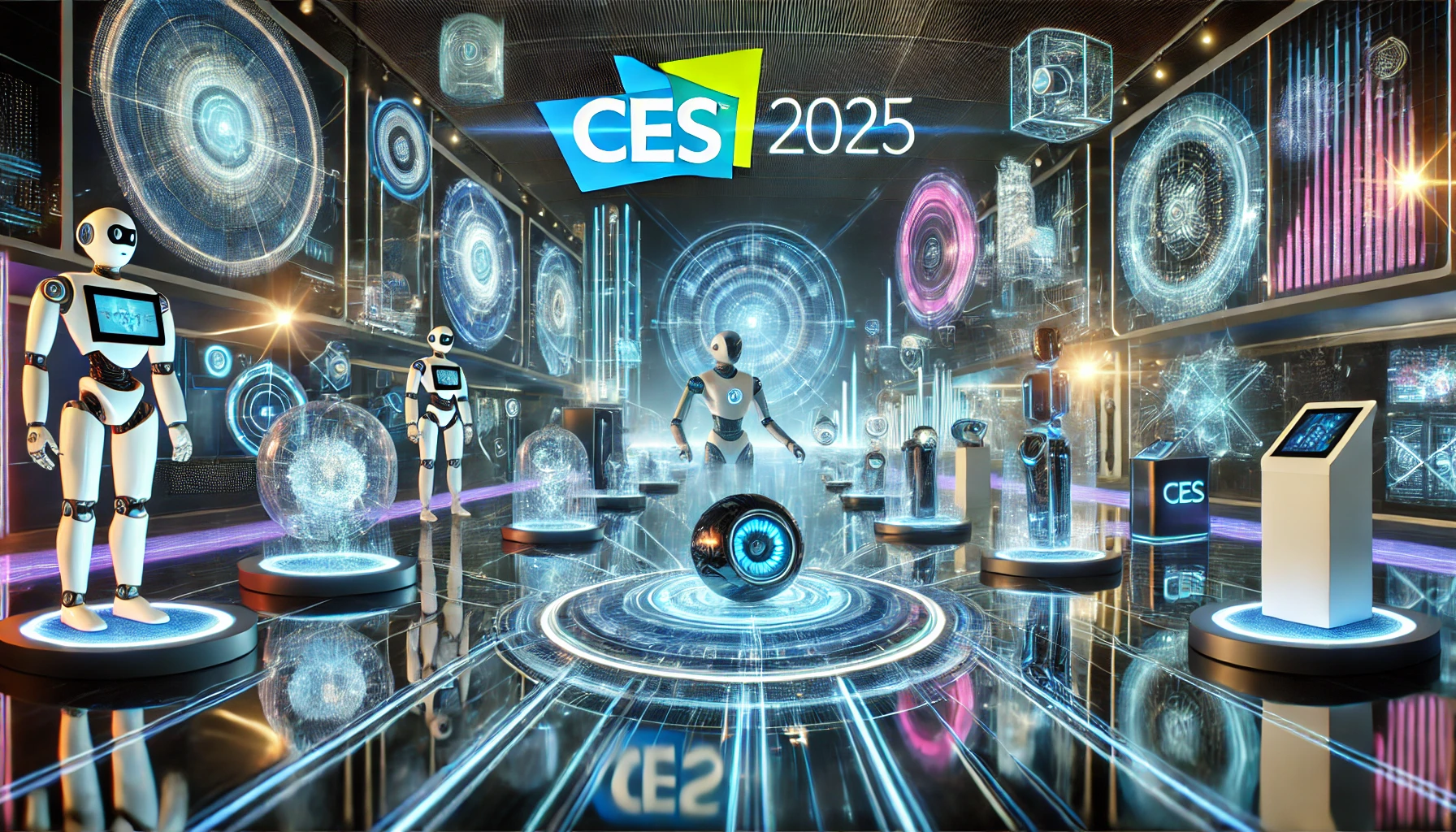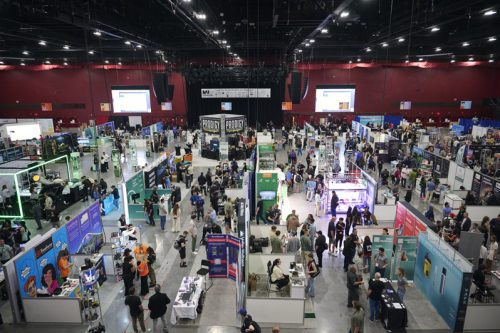CES 2025 opened with a flurry of groundbreaking announcements, showcasing cutting-edge advancements in artificial intelligence, robotics, and consumer gadgets. Day 1 media Day set the tone for a transformative year in tech, with major players such as Nvidia and LG leading the charge and a host of innovative startups presenting unique devices.
LG’s Vision of “Affectionate Intelligence”
LG took the stage to unveil its pioneering concept of “Affectionate Intelligence,” a vision that integrates artificial intelligence across devices to create a more human-centric ecosystem.
- Enhanced AI Agent: LG’s AI system, powered by the new Furon platform, promises seamless integration across home appliances, vehicles, and personal devices. This enhanced agent learns user preferences to deliver a highly personalized experience, ensuring that all devices in the ecosystem work cohesively. Whether adjusting a smart thermostat based on daily routines or optimizing car settings for a morning commute, Furon’s capabilities aim to redefine convenience.
- Open Ecosystem: LG emphasized inclusivity by developing an AI hub capable of connecting devices from various brands. This ensures users are not restricted to LG products, fostering adaptability and user-centric innovation.
- Security Measures: Addressing the growing concerns over data privacy, LG introduced LG Shield, a robust security framework that protects user data across its ecosystem. By prioritizing transparency and user trust, LG aims to position itself as a leader in secure AI integration.
Nvidia’s AI Innovations: Redefining Industries
Nvidia’s CEO, Jensen Huang, delivered a keynote that highlighted the company’s commitment to advancing artificial intelligence in various sectors, including gaming, robotics, and autonomous systems.
- Blackwell AI Processor: Nvidia’s latest processor powers the new GeForce RTX 50-series GPUs, delivering unparalleled performance for gamers and creators. These GPUs, available for desktops in January and laptops in March, boast enhanced graphics rendering and AI-driven features that set new industry standards.
- Cosmos Platform: Designed to accelerate physical AI development, the Cosmos platform enables developers to train autonomous systems using synthetic data. With applications spanning autonomous vehicles, robotics, and industrial automation, Nvidia’s Cosmos is poised to drive innovation across multiple industries. Early adopters, including Uber, are already leveraging the platform.
- Agentic AI Blueprints: Nvidia introduced tools for creating AI agents that can automate complex tasks, such as summarizing videos or converting PDFs into podcasts. These blueprints aim to streamline workflows for enterprises, boosting productivity and efficiency.
- Project Digits: Aimed at AI researchers, Project Digits is a high-performance personal computer capable of running large language models independently. Starting at $3,000, this PC is set to revolutionize AI research accessibility when it launches in May.
Innovative Gadgets Steal the Show
While tech giants dominated headlines, a range of unique gadgets showcased the creativity and diversity. From quirky robots to futuristic transportation, these devices captured the imagination of attendees.
- Electric Skates by Atmos Gear: Heralded as the world’s first electric skates, these high-tech gadgets can reach speeds of up to 18 mph with a 16-mile range. Powered by a compact, waist-worn battery pack, they promise a thrilling and efficient way to navigate urban environments.
- Mirumi Furry Bag Robot: This charming robot attaches to handbags and mimics human baby interactions to provide companionship. Combining robotics and emotional intelligence, Mirumi offers a playful solution for those seeking an unconventional AI companion.
- ColdSnap Ice Cream Maker: Leveraging pod-based technology similar to a coffee machine, ColdSnap produces fresh ice cream in minutes. Perfect for dessert enthusiasts, this device brings the convenience of pod-based appliances to the realm of frozen treats.
Emerging Trends
The themes of connectivity, personalization, and sustainability dominated Media Day, with companies unveiling solutions designed to enhance user experiences while addressing environmental concerns.
- Samsung’s Modular Displays: Samsung unveiled a new line of modular displays that adapt to different environments, from home theaters to professional workspaces. These displays emphasize flexibility and sustainability by using eco-friendly materials.
- Sony’s Immersive Entertainment Hub: Sony introduced a virtual entertainment platform combining AR and VR technologies to deliver immersive experiences. Targeted at gamers and digital creators, this hub aims to redefine how users interact with digital content.
- Sustainability Initiatives: Many exhibitors highlighted eco-friendly practices, such as biodegradable materials in product manufacturing and energy-efficient designs. Startups like GreenTech showcased solar-powered smart devices, underlining the tech industry’s commitment to sustainability.
The Future of AI-Driven Experiences
The show reinforced the tech industry’s focus on leveraging AI to create intuitive, connected experiences. LG’s “Affectionate Intelligence” and Nvidia’s Cosmos platform exemplify how AI is evolving to anticipate user needs and enhance everyday life. As these technologies become more integrated, consumers can expect greater personalization, efficiency, and accessibility.
Closing Thoughts
Day 1, aka media day, was our first ever experience attending this event. The first day set a high benchmark for innovation, with groundbreaking announcements across AI, gadgets, and sustainable tech. From Nvidia’s AI breakthroughs to LG’s human-centric vision, the event highlighted the limitless potential of technology to transform lives.
As the week unfolds, the event promises even more exciting developments, shaping the future of the digital world. Stay tuned for more updates on CES and other technology via RespectMyRegion.com.







